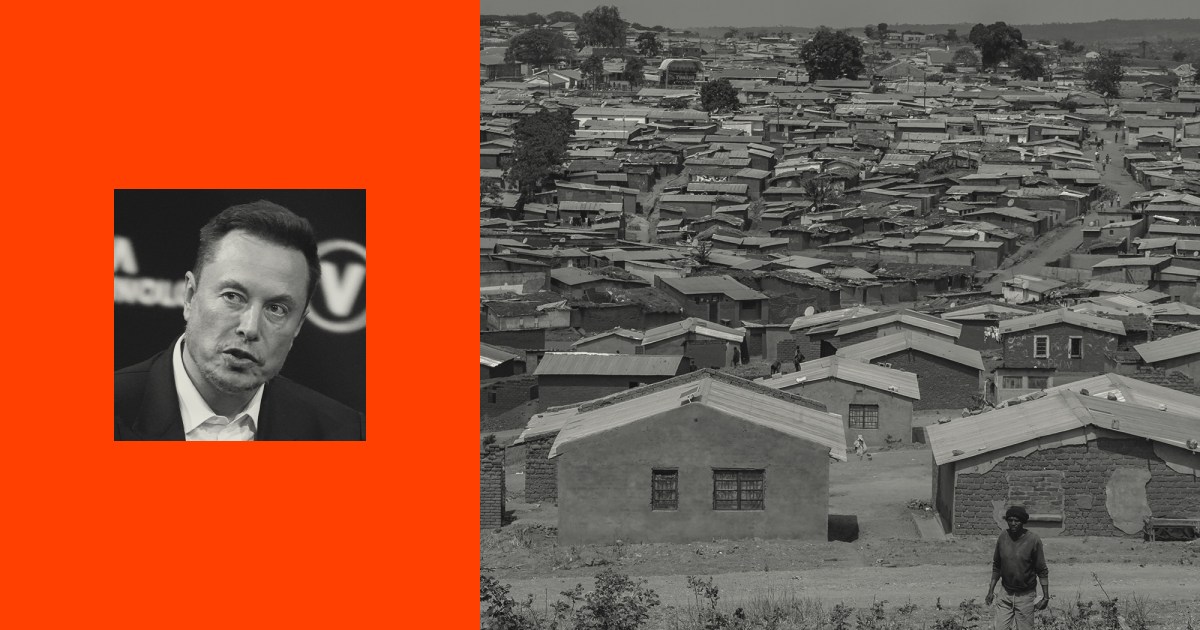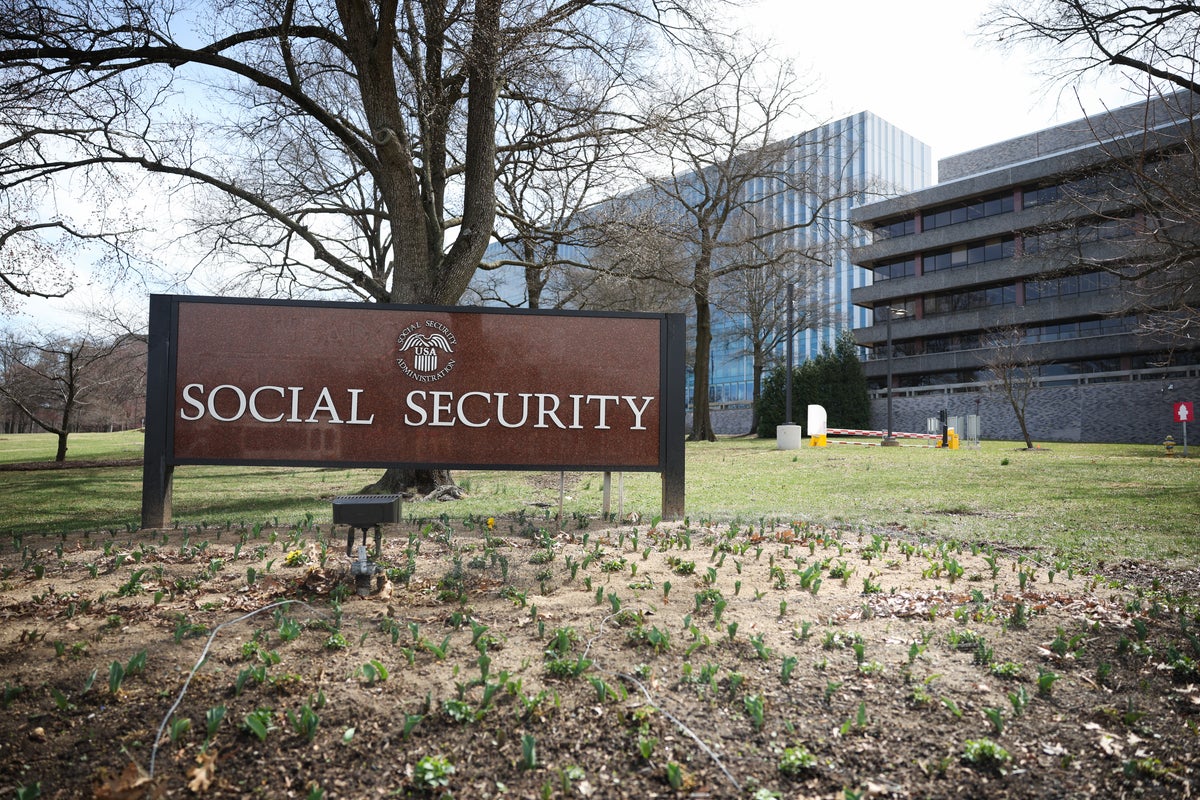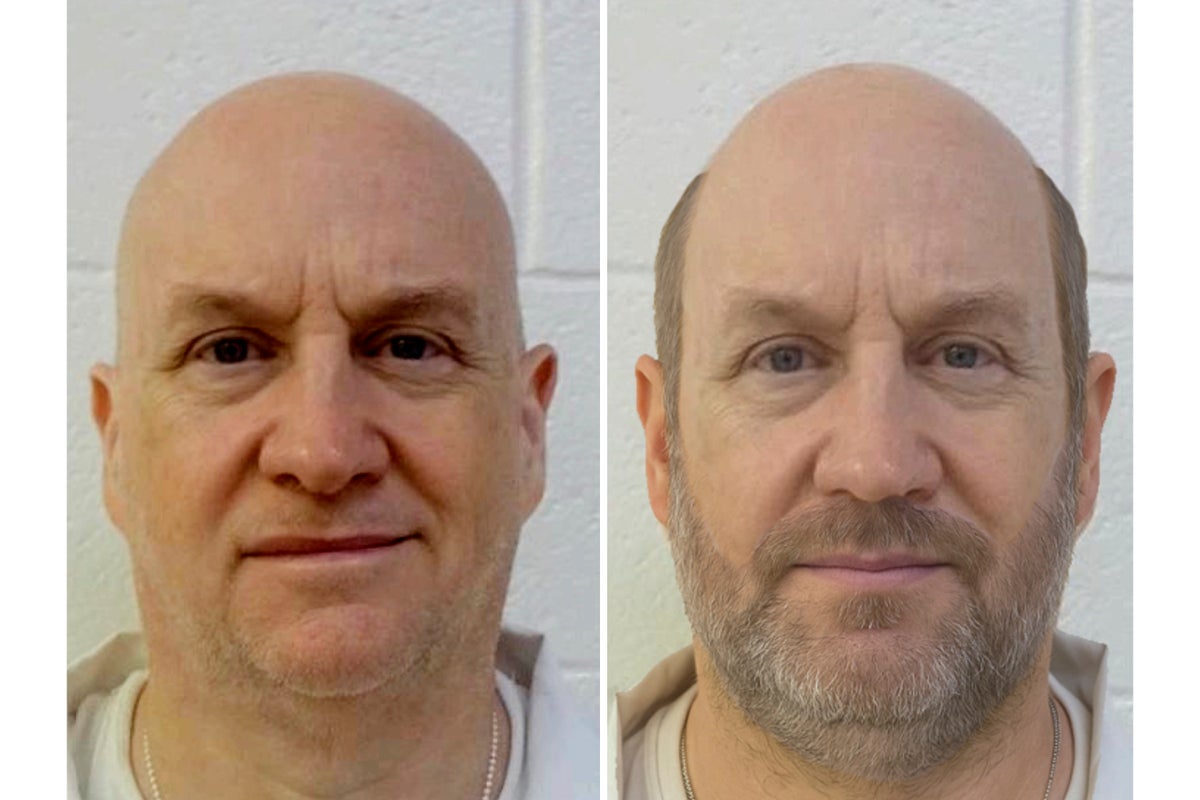Elon Musk is trying to rewrite the history of his four-month tenure in Washington. As the billionaire founder of Tesla and Space X returns to the private sector after four months as a “special government employee,” he has put aside the celebratory chainsaw and cast himself as a misunderstood outsider whose dreams of efficiency were stymied by a terminally broken bureaucracy.
Nowhere is this attempted whitewashing more jarring than his effort to sweep away the consequences of the dismantling of the United States Agency for International Development, which has supported food assistance programs around the world and helped administer the President’s Emergency Plan for AIDS Relief, or PEPFAR. Musk once bragged about feeding USAID into a “woodchipper.” But, on May 20, when Bloomberg’s Mishal Husain asked about the disruption of PEPFAR funding in an interview in Qatar, the tech executive dismissed the claim out of hand.
“First of all, the program, the AIDS medication program is continuing,” he said. “So your fundamental premise is wrong. Do you have another example, since the one you cited is false?”
As Husain pressed on, explaining that the State Department—which is absorbing what’s left of USAID—had granted a waiver only to certain PEPFAR programs, Musk repeated his denial.
“It’s false, it’s false,” he said. Before Husain moved on, Musk made a promise: “Okay well which ones aren’t being funded? I’ll fix it right now.”
But it was not false. And Musk did not fix it.
Despite his assurances on stage—and his subsequent assertion in response to the rocker Bono that “zero people have died” as a result of funding cuts—the destruction he spearheaded is continuing to have devastating effects in places that relied on USAID for lifesaving aid. But don’t take my word for it; take the Trump administration’s. State Department cables obtained by Mother Jones warn that cuts to foreign assistance programs are driving hunger and human trafficking in Malawi, and threatening to undo years of progress battling the AIDS epidemic in Lesotho, by terminating a program that worked to prevent HIV transmission from mothers to their children.
These are just two examples, based on internal records. But the consequences of slashed or interrupted services have been severe and wide-ranging. The US has cut programs for malaria. At a hearing on Capitol Hill last month, Secretary of State Marco Rubio celebrated cutting “$10 million for male circumcision in Mozambique”—a PEPFAR-supported program that reduced HIV transmission in 2.5 million men by 60 percent. The assertion that people will you die if you take away their food or medication is not a hypothetical; New York Times columnist Nicholas Kristof previously reported on an HIV-positive 10-year-old orphan from South Sudan named Peter Donde who died from a pneumonia infection after the administration shuttered the community health program that ensured his access to medication. Rubio, like Musk, has called the reports that children have died as a result of program interruptions a “lie.”
“The abrupt termination of this award has severely disrupted care delivery and threatens to reverse hard won gains in controlling Lesotho’s HIV epidemic that leaves Lesotho vulnerable at this critical juncture,” the memo stated. “With a shrinking health workforce, the quality and continuity of care have markedly declined—placing approximately 125,000 adults and children at risk of illness and death.”
Before he went on the defensive, though, Musk seemed to relish the process of gutting foreign assistance. Destroying USAID was one of Musk’s first tasks at the so-called Department of Government Efficiency. In his first weeks in Washington, the world’s richest man spread a conspiracy theory that USAID had helped start the Covid-19 pandemic, falsely suggested that it secretly bankrolled news organizations like Politico, and dismissed the agency’s employees as “radical-left Marxists who hate America.” The sense that the people wielding the chainsaw did not understand what they were cutting down was reinforced by Musk himself, who stated at a public cabinet meeting that “we accidentally canceled” Ebola prevention but had quickly restored the program. (The program in fact had not been restored.)
Musk was not simply going rogue. His attacks were in sync with an executive order from President Donald Trump ordering a review of all foreign assistance projects, and a freeze on foreign-aid spending pending further approval. Although the State Department announced that certain life-saving programs, such as food assistance and PEPFAR, would receive waivers to continue operating, those waivers were slow to arrive and undercut by payment issues. And some programs that seemed to meet the narrow criteria were terminated anyway after a cursory review process.
That was the case with the Bophelo Bo Botle (Good Health) award, a $7 million PEPFAR grant implemented by the Elizabeth Glaser Pediatric AIDS Foundation (EGPAF) in the small southern African nation of Lesotho. The country, which Trump used as a punchline during his State of the Union, has the second-highest HIV prevalence rate on Earth, but it has made significant strides thanks to years of investment in testing, education, and treatment. The award was terminated anyway on February 26 and has not been reinstated.
In a May 23 cable urging the State Department to restore the cuts, a diplomat in the US embassy in Maseru noted that the program had been “delivering important services permitted under the Lifesaving Waiver” and warned that the cuts would have deadly consequences. “The abrupt termination of this award has severely disrupted care delivery and threatens to reverse hard won gains in controlling Lesotho’s HIV epidemic that leaves Lesotho vulnerable at this critical juncture,” the memo stated. “With a shrinking health workforce, the quality and continuity of care have markedly declined—placing approximately 125,000 adults and children at risk of illness and death.”
According to the US diplomat, the termination means “over half of those currently receiving HIV/AIDS treatment in Lesotho will lose access, leading to treatment interruptions, increased new HIV infections, and higher mortality rates.” But it was not just about people currently living with HIV; one of the major purposes of the program, according to the cable, was “prevention of mother-to-child transmission.”
Musk did not respond to a request for comment. In response to inquiries from Mother Jones, a State Department spokesperson said that, “Following the Secretary’s approval for lifesaving PEPFAR programs, PEPFAR program implementers who are providing lifesaving treatment and prevention of mother to child transmission services were notified and urged to resume approved service delivery,” and that ”[a]gencies have been working with their implementers to resume activities as quickly as possible.”
But Catherine Connor, vice president of Public Policy and Advocacy at EGPAF, confirmed that while the organization was still hoping to restart the program, “the outlook is not positive.”
“I think that we’re just now entering the phase where we’re able to look at the whole picture and say, well, ‘we removed this piece of the puzzle, we lost more than we were betting on,’” Connor said. “My impression is that when these decisions were made, they were made based on what’s happening on paper, not in practice. And now that these decisions are being put into practice, the implications of those decisions are coming to light.”
With the termination of the program, EGPAF had “lost our eyes and ears and hands on the ground that would have really helped us identify patients that may be falling off of care, identify places in the health system where we could try the course correct,” she said. And the Lesotho government lacked the resources to fill the void.
“Right now, there is a hole in the health system on what they’re able to offer,”
Connor said. “The average annual income of a person in Lesotho is not much more than $1,000 a year. I think the ability for the [Lesotho] government to step in and fill these gaps quickly, you know, I think they’re trying their best, but it’s just hard to imagine a situation where they could jump in quickly and fill the gaps that the US government is leaving.”
That’s just one program, in one country. Emergency food aid was another category that was supposed to be eligible for waivers. But some of the funding was simply cut. ProPublica recently reported on a State Department cable from April warning that the administration’s reductions in food aid were worsening conditions in refugee camps in Malawi—leading to an increase in human trafficking. That warning was not heeded, and in May, a diplomat at the US Embassy in Malawi’s capital city of Lilongwe sent the State Department another warning on the subject. The memo, which was obtained by Mother Jones, warned that “Reductions in assistance will exacerbate hunger, malnutrition, and other drivers of migration, making it difficult for Malawians to feed themselves and continue to support 60,000 refugees currently residing in the country.”
“Without intervention,” the official added, “continued deterioration of the food security situation will lead to loss of life.”
Food assistance in the country’s refugee camps is administered by the World Food Program. The Trump administration slashed hundreds of millions of dollars in World Food Program funding—then said it had done so by mistake in some cases, and would turn the spigots back on. But that hasn’t happened in Malawi. A State Department official in Malawi reported that “[t]he lack of a USAID contribution to date in FY 2025 has made it necessary for the World Food Program to reduce the ration transfer from 75 percent to 50 percent of the caloric value.” Rations in the country’s largest camp “are set to run out in June.”
The World Food Program cuts weren’t the only ones with major ramifications. “One USAID-funded emergency award implemented by a non-governmental organization was terminated, canceling planned food assistance for over 27,000 people and agricultural recovery support for small farmers,” the memo noted, “and a second award providing emergency nutrition commodities was also terminated.”
And the consequences of reduced food aid went well beyond malnutrition. According to the cable: “Local social welfare authorities and police shared their observations of sharp increases in intimate partner violence, child abandonment, child marriage, and trafficking in persons in the food-insecure areas they serve, resulting from the intense stresses faced by families without food.”
In a statement, the State Department spokesperson said that “an overwhelming majority of WFP programs—nearly 80% of pre-existing awards and over 115 programs with WFP—remain active” and that “the most critical elements of our global nutrition response remain fully operational.”
But they also offered a defense of the cuts as a matter of national interest:
“America is the most generous nations [sic] in the world, however no one can reasonably expect the United States to be equipped to feed every person on earth or be responsible for providing medication for every living human.”
For Musk, this skepticism about the value of food assistance is a bridge between his public and private work. In 2021, after the president of the World Food Program suggested on the platform now known as X that Musk could end starvation by giving away just two percent of his fortune, the billionaire shot back with a challenge. “If WFP can describe on this Twitter thread exactly how $6B will solve world hunger, I will sell Tesla stock right now and do it,” he said. Later that year, Musk did donate nearly $6 billion of stock to an undisclosed charity, leading to speculation that he may have followed through.
But the money ultimately did not go to staving off starvation; it ended up, instead, at his personal foundation—which distributed just 2.8 percent of that amount to actual charities that year.















